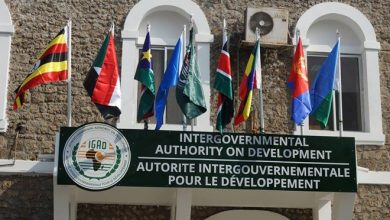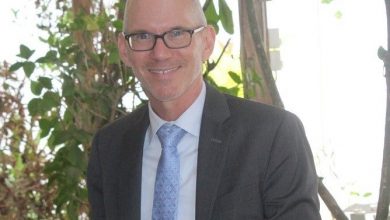Moving to My Parents’ Homeland Helped Me Find Belonging
Growing up, I never thought that moving through continents and road-tripping across borders were out of the norm.
Growing up, I never thought that moving through continents and road-tripping across borders were out of the norm. I chalked it up to being a descendant of nomads and seamen but realistically, it’s probably because it was all I ever knew. In my first passport photo, I didn’t have the motor skills to hold myself up so pillows were placed like a fort around me. By the time I was 18, I had lived in five countries across three continents and spoke four languages. But it wasn’t until I moved to university in the U.K. that I discovered how this had shaped me. I could be a chameleon wherever I went, connect with people easily, and have deep empathy and understanding of different cultures. Yet the one thing I didn’t have was an understanding of was my own origin.
I was born in Denmark, but my parents are from Somalia. Like many Somalis who settled abroad, our family got out of the country when the civil war broke out in the early 1990s, and our three-bedroom Copenhagen apartment became a place of community, reconnection, and refuge. My parents often received phone calls from strangers who had arrived at a train station or airport and were seeking a place to stay. I would sit with my grandfather and other elders and listen to them discuss politics and history, or watch as they created some semblance of their Somalia in the harsh nordic weather. I was surrounded by photographs, culture, and the language of a place I didn’t know, and this was embedded in my subconscious, becoming what I like to call secondary nostalgia. I was the only Black kid in a private Danish school proudly saying that I was Somali. Did I know what that meant? Probably not, but it helped root my identity.
Many first-generation kids struggle with identity—you’re never enough of your original home and not enough of your adopted one. I vividly remember the times when I was told that my Somali sounded like a white person had learned to speak the language, as well as other occasions when I was told that I couldn’t possibly be Danish. But I also remember the moments when my parents sat me down and told me that I am every part of my experience, that there was no side to choose. Somali British poet Warsan Shire writes “I belong deeply to myself,” and it was those conversations that helped me first find home in myself.
We lived in Malawi and Kenya after Denmark. Whenever we traveled, I would eagerly watch our flight make its way over the Horn of Africa on the screen in front of me. I’d look out of the window, into the expanse of sky, and wonder what it was like down there. Down there with people that look just like me. Little girls and boys with missing teeth running underneath the scorching sun, as aunties with qasil face masks go on about their daily routines. Old men with henna-dyed beards having conversations over sweet black tea, as the athan (call to prayer) begins to sound over the mosque megaphones.
When I was offered a job in Somalia two years ago, I said yes quickly, before my anxious mind could catch up with the big decision I was making. Before I knew it, I arrived in Garowe on one of the windiest days of the year. It was dry, desert-like, and scorching hot. Once my eyes became accustomed to how bright it was, I began seeing people who all looked like they could be my cousin. My ears were saturated with loud Somali from every direction, leaving me disoriented, but the joy in people’s faces when they saw my foreign passport and realized I had chosen to come home brought me back to center.
Dalkan waa dalkaagi, soo dhowoow; this country is your country, welcome.
I was told this so many times that it almost became a mantra in my head. An elderly lady at the market called after me one day, seeing from the way I carried myself that I wasn’t indigenous to Somalia, and welcomed me back, reassuring me that I belonged, that this was home. I learned that day that the essence of belonging is acceptance—you don’t have one without the other.
This acceptance provided an anchor I never knew I needed. There is an affirmation in belonging that provides some inner peace. It empowers. You start to walk a little taller. That chip on your shoulder loosens and your dissonance becomes an answered puzzle. I began to believe in myself a little more because I finally had the answer to that question:
What’s it like down there?
It’s like family waiting for you to come home.





